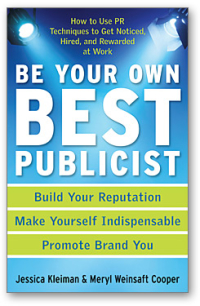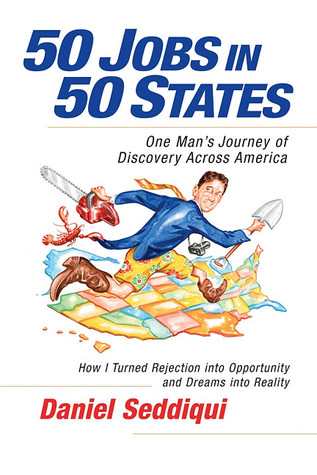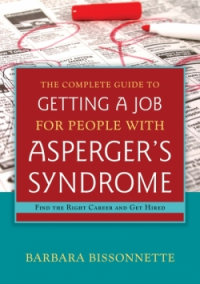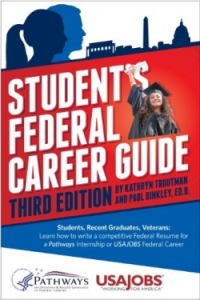Career Books Can Be Dull; Here Are 4 Indies That Aren't
Despite a slowly rebounding US economy, some ten million or so people remain unemployed. Just recently, the 2014 class of college grads entered the job market. Many of them are anxious about finding work, and others wonder if they’ll ever be able to pay off their student loans. At the same time, baby boomers who have exited the workforce, by choice or by circumstance, are exploring second careers, thinking about self-employment, or pondering part-time positions.
It all adds up to a kind of perfect storm for the career guidance market, and career books have been booming in the past few years. While you might think books for job seekers are pretty standard fare, this is an area that, surprisingly, is filled with creative titles whose aim is differentiation. Here are some of the more unusual titles in this category that caught my eye:

When you read Be Your Own Best Publicist (Jessica Kleiman, Meryl Weinsaft Cooper, Career Press, 2011), you wonder why someone didn’t think of this before. Here, two public relations professionals apply the basic principles of public relations to self-marketing in a breezy work peppered with “Key Messages” and “News Flashes.” Kleiman and Cooper offer job seekers, employees looking to differentiate themselves, and budding business owners practical advice that suggests how to go about promoting themselves as personal brands. “In today’s world,” write the authors, “where image is paramount and your digital footprint is set in cement, it is even more crucial to be your own best publicist, advocate, and cheerleader in the workplace.” Topics such as how to dress for success, how to quietly make others aware of personal accomplishments, and how to be smart about using social media are included.

Daniel Seddiqui’s 50 Jobs in 50 States (Berrett-Koehler, 2011) is as much a personal saga as a book of career guidance. When his USC degree in economics led to no job offers, Seddiqui decided he would go on an unusual quest, trying to getting a job in every one of the fifty states. He succeeded, perhaps because he concentrated on jobs indigenous to the state that didn’t require lots of experience (border patrol in Arizona, for example). Seddiqui tells his tale in fifty clever chapters, one per job. The book was notable enough to generate an offer for a reality show, which the author turned down. Seddiqui wraps up the book with advice for college students, focusing on “the five critical elements of my success: perseverance, adaptability, networking, risk-taking, and endurance.”

A fine example of a career book that truly pinpoints an audience is The Complete Guide to Getting a Job for People with Asperger’s Syndrome (Barbara Bissonnette, Jessica Kingsley Publishers, 2012). This 2012 IndieFab Gold Award Winner focuses its attention on a select group of individuals, but it is so comprehensive that any new job seeker will benefit from it. Bissonnette covers all the basics: matching one’s interests to occupations, how to research jobs, resumes and cover letters, interviewing, and more. She pays special attention to areas that might create discomfort for those with AS, such as “what networking is and why you shouldn’t fear it,” “dos and don’ts of disclosing,” and “managing anxiety.”

A potentially wide open job market for recent graduates may well be lurking in the massive infrastructure of the federal government. This reality makes Student Federal Career Guide (Third Edition, Kathryn Troutman and Paul Binkley, The Resume Place, 2013) a valuable find. The authors offer a ten-step approach for students and recent grads to get a federal job, including tips on how to research positions, network, find the right federal agency, utilize USAJOBS for job searches, and write a “federal resume” (yes, it is different from the traditional resume). The book’s sample cover letters and federal resumes are a goldmine for grads looking for specific templates they can follow. This book was the 2013 IndieFab Gold Award Winner in the Career category.
In closing, let me highlight this piece of publishing trivia: It is the career book category that lays claim to one of the biggest small press success stories of all time: What Color is Your Parachute (2014 Edition, Richard N. Bolles, Ten Speed Press, 2013). Originally published over forty years ago, this job-hunting guide has since been updated and issued in a new edition annually. It has sold in excess of ten million copies in more than twenty languages. Time magazine calls it one of the 100 best and most influential nonfiction books written in English. What Color is Your Parachute?, published in 1972, was one of the first books from Ten Speed Press. A then obscure Berkeley, California small independent publisher founded by a former big publishing house salesman, Ten Speed was acquired by Random House in 2009.
Barry Silverstein
